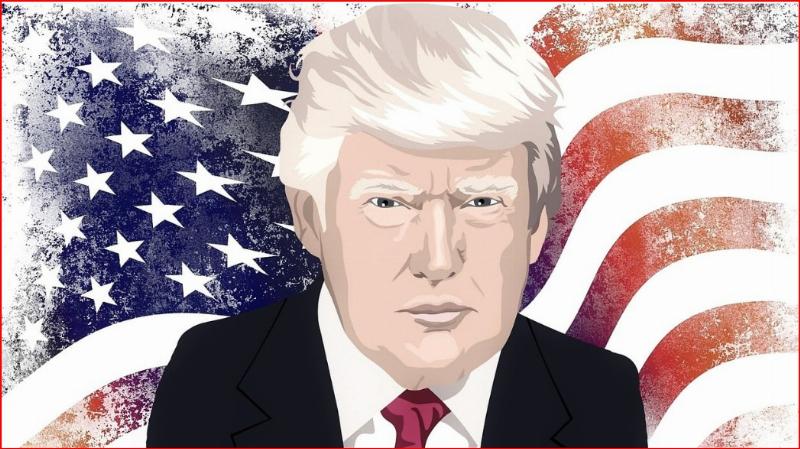


While headlines chase shadows and social media churns with conspiracies about Jeffrey Epstein, something far more serious—yet underreported—is unfolding: America just ran a budget surplus in June.
That’s right — the U.S. government, long buried under record-breaking deficits, posted a $27 billion surplus, the first for that month in eight years. And it wasn’t a fluke. It was driven largely by one policy move: tariffs.
Back in April, critics warned that Donald Trump’s newly announced “Liberation Day” tariffs would tank the economy.
Instead, those tariffs have proven to be a financial engine.
Trump invoked the International Emergency Economic Powers Act (IEEPA) to declare a national emergency over the trade deficit, which hit $1.2 trillion in 2024. Beginning April 5, his administration imposed a 10% tariff on all imports, followed by higher, targeted tariffs on 57 nations.
The immediate outcry was deafening.
Opponents forecast inflation, shortages, and recession.
But they were wrong. The data tells the story.
In April alone, tariff collections reached $15.6 billion, nearly double what came in the same month a year prior. Businesses adapted quickly, and retail inventories even rose by 0.3%, suggesting companies were learning to navigate the new trade landscape. Meanwhile, core inflation stayed tame at 2.7%, far below the apocalyptic projections.
In fact, the inflation narrative collapsed entirely. By June, despite customs duties totaling $113.3 billion for the year, inflation remained steady at 2.7%, while tariffed goods like electronics saw only a 12.3% price uptick — well below the inflation many feared. Food prices? Up just 6.2%, and domestic dairy? A modest 2%–3% increase.
Even consumer confidence held strong, supported by real gains for workers. Manufacturing wages climbed 7.8% compared to pre-tariff levels, as domestic production surged. Steel alone added 47,000 jobs since the tariffs took effect.
These aren’t isolated successes.
Tariff collections are compounding. As of June, they’ve pulled in $113.3 billion for fiscal year 2025 — almost double the full-year total for 2024. June alone brought in $27.2 billion, setting a new monthly record. If this pace continues, annual customs revenue could top $300 billion by year’s end.
At the same time, the federal deficit — long a symbol of national decline — is starting to bend. The Congressional Budget Office now projects that if the tariffs are maintained, the deficit could shrink by $2.8 trillion over the next decade, with only minor economic trade-offs and just 0.4% annual inflationary pressure through 2026.
The trade deficit itself tells a story.
In May, it stood at $96.6 billion, up 11.1% from April but with exports only dropping 5%, indicating resilience in American production. Imports remain nearly flat at $275.8 billion, suggesting tariffs are curbing foreign goods without collapsing trade. Trump’s administration argues these trends validate their America First trade policies, prioritizing domestic growth over global trade imbalances. America isn’t isolating — it’s re-calibrating.
Still, you wouldn’t know any of this if your news diet comes from social media echo chambers. Instead of focusing on policies actually reshaping the economy, many on the populist right are consumed by rabbit holes. On Wednesday, Trump called them out directly.
In a Truth Social post, he decried the “new SCAM” which “is what we will forever call the Jeffrey Epstein Hoax, and my PAST supporters have bought into this ‘bulls[***],’ hook, line, and sinker.”
Trump alleged the Epstein rabbit hole was dug by his opponents across the aisle. Of heretofore backers possessed by Epstein delusions, Trump said: “Let these weaklings continue forward and do the Democrats work, don’t even think about talking of our incredible and unprecedented success, because I don’t want their support anymore!”
That’s not just rhetoric. The administration is pressing forward, now targeting semiconductors and pharmaceuticals for tariff-based re-shoring.
So far, the economy is responding. Manufacturing output remains steady, with 12,000 new jobs added in the sector during April, particularly in steel and aluminum industries bolstered by earlier tariffs.
Consumer price indices for that month showed a modest 0.2% increase, far below the catastrophic inflation rates forecast by skeptics. The tariffs generate $6.8 billion more than the previous year’s April, proving their revenue-generating potential.
Consumer spending remains strong. Businesses are shifting supply chains toward domestic producers. And contrary to all those dire warnings, households aren’t being crushed by costs.
Tariffs are doing exactly what critics said they couldn’t: generating massive revenue, strengthening domestic industry, and cooling the trade deficit — all without fueling runaway inflation. That’s not an opinion. That’s what the numbers show.
And yet, far too much of the national conversation is being hijacked by distractions. If conservative and populist media want to remain credible and effective, they should shift their attention toward the truth.
Ignoring real success in favor of speculative tales about Epstein is a disservice to concerned citizens. The facts are clear: Trump’s tariffs are paying off, and the economic winds are shifting.
The time is now to focus on what matters.
Dr. Joseph Ford Cotto hosts and produces News Sight, speaking the data-driven truth about economic and political issues that impact you. During the 2024 presidential election, he created the Five-Point Forecast, which correctly predicted Trump's national victory and the outcome in all swing states. The author of numerous nonfiction books, Cotto holds a doctorate in business administration and is a Lean Six Sigma Certified Black Belt. During 2014, HLM King Kigeli V of Rwanda bestowed a hereditary knighthood upon him. It was followed by a barony the next year.
Image: Pixabay / Pixabay License
